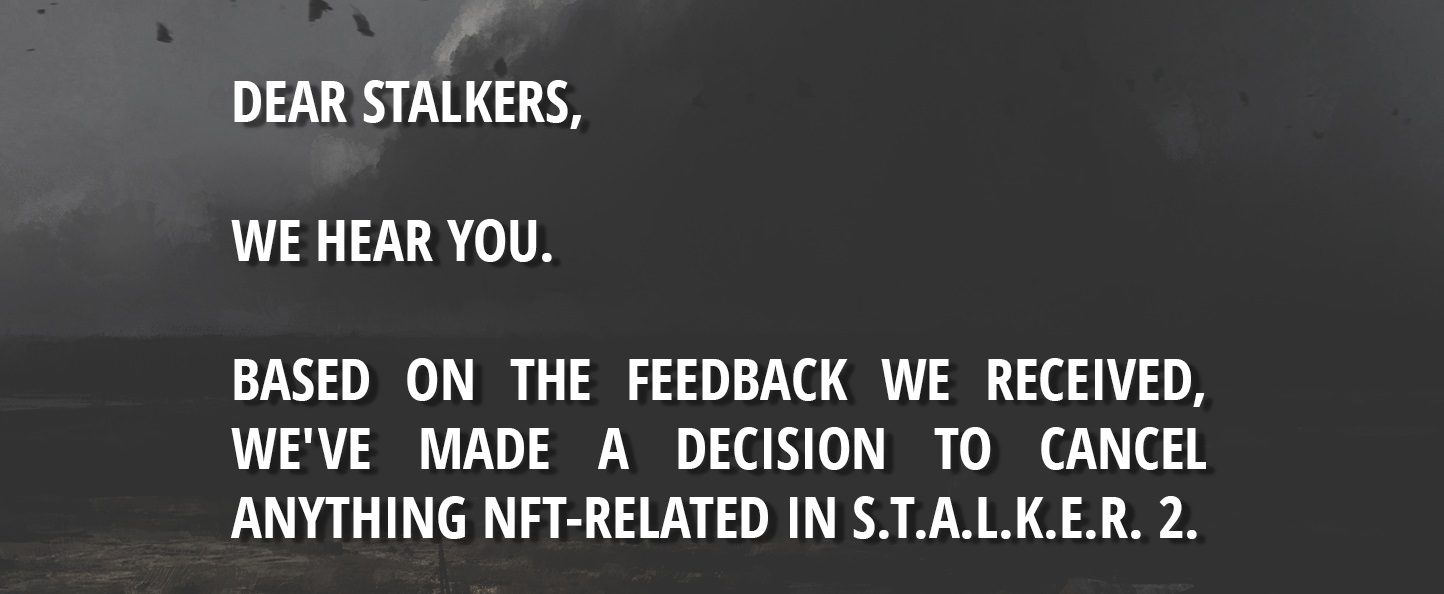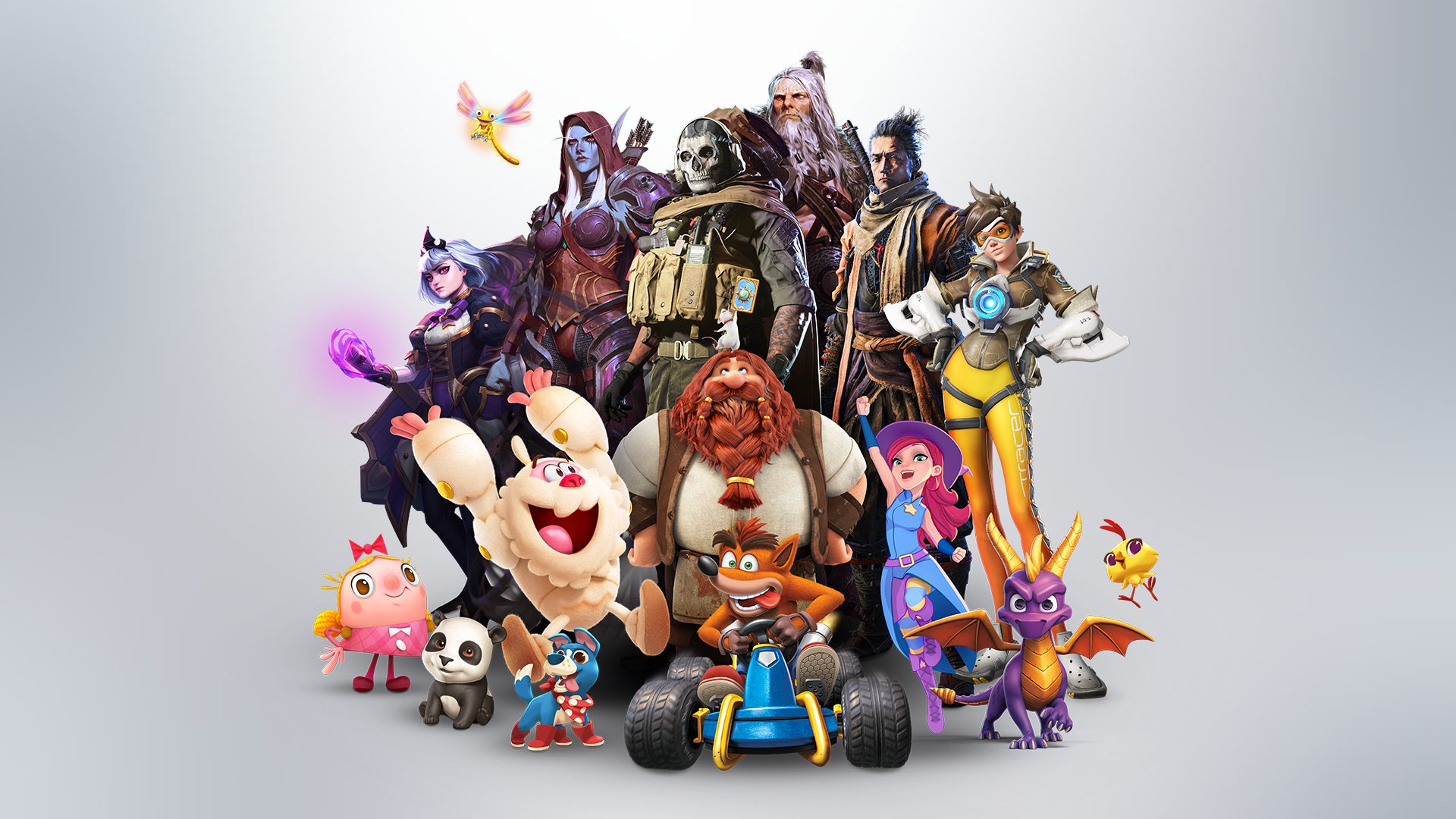From Activision Blizzard to NFTs, it’s been a long year
The year 2021 is finally coming to a close, and it sure has been a long one. It marked the second year of the COVID-19 pandemic. For the gaming industry first full year of next-gen consoles, and another year of online events and showcases—at least, for most of the year.
There were cloudy spots and rays of sunshine amongst the headlines. Amid all of it, this has certainly been a time for reflection and examination. As shortages and a shift to remote work put pressure on both the software and hardware sides of the industry, everything was in flux. Yet still, there were a few heartwarming tales that, even if they didn’t rock the world, did keep us moving forward.
With all that in mind, here are some of the biggest gaming stories that dominated the headlines in 2021.

Activision Blizzard
Without a doubt, one of the most notable and high-profile stories of 2021 was the situation at Activision Blizzard. The California Department of Fair Employment and Housing announced its lawsuit, and not long after, stories of discrimination, harassment, and a bad workplace culture flooded out.
As the year went on, stories continued to crop up, employees spoke out, and workers even began to organize and make demands that their company do better. If anything marks a difference between past reports of shoddy workplaces and now, it was the unified response seen from employees at Activision, Blizzard, and the many studios under the publisher’s massive umbrella.
It is the end of 2021, and while some demands like the removal of required arbitration have been met, employees have still called for the removal of Activision Blizzard CEO Bobby Kotick. All the while, even more stories continue to surface, with internal issues at the company seemingly dating back years and years. It also energized efforts at other companies too, as Ubisoft workers began to call for the changes they weren’t seeing enacted after last year’s reports. Suffice to say, this is a story that will likely continue to play out in 2022, and with state agencies involved, could be pretty massive.
The ongoing effects of COVID-19
In a 2020 interview, Xbox head Phil Spencer said that the industry would start to see the impact of the coronavirus in 2021. It’s a quote that bounced around in my head throughout the year, as we continued to see the pandemic and virus have an effect on almost every part of the industry.
Development on quite a good number of games has been delayed, due to the shift to remote work and adjustments that needed to be made. Shortages throttled the hardware side, generating issues with meeting demand for new consoles and even affecting more specialized hardware. Showcases moved online, E3 was held digitally, and the whole industry had to keep adjusting to a new norm.
There were some glimmers, however. The Game Awards were held in person, and PAX held an in-person event. There’s even a PAX East on the books for 2022, as well as other possible events.
Whether any of that sticks, with the surge of new variants going around, remains to be seen. But even on a small scale, the industry has been adapting. The cross-generation bridge lasting a little longer hasn’t been a terrible thing, and has seen the rise of programs like Smart Delivery. Publishers have started to dial in the whole online showcase thing that Nintendo had previously cornered the market on, and remote previews have become common on our side of things, which is really great for more voices to get more coverage opportunities. If nothing else, we can hopefully continue to make lemonade out of lemons next year.

NFTs, I guess
Here is the obligatory mention of NFTs, or non-fungible tokens, a trend that kicked up at the tail end of 2021. A concept that still seems strange, even when you do have a handle on it.
NFTs quickly became the least-favorite subject of anyone who doesn’t own one. Since their emergence into daylight, it’s been a series of publishers attempting to cash in on the latest trend. Staunch defenders advocate for their industry-changing potential, while critics point out the many flaws with their current existence. People on the inside of early attempts to incorporate NFTs are questioning their very inclusion.
It’s a mess. But if you’re not a fan of NFTs, there has been one upside: the resounding response to attempts to put them into games has, so far, been met with great resistance. There’s no better example than the immediate about-face seen in the S.T.A.L.K.E.R. 2 NFT fiasco. Are we going to see more of these things in 2022? Yeah, probably. But for now at least, they’ve failed to latch on in any meaningful way outside a few cosmetics in a Tom Clancy’s game.
Indies rule the world
It’s not like it was a slow year for games. Granted, many major games either pushed out to next year, or arrived very late in the year. Titles like Ratchet & Clank: Rift Apart, Forza Horizon 5, Resident Evil Village, and Halo Infinite still dominated.
But man, was it a good year for indie games. Some serious heavy-hitters of the year came up through the indie scene. Small projects like Inscryption and Wildermyth captivated us with refreshing new ideas. Death’s Door wow’d us with its fresh look and beautiful action. It’s been hard, some years, to get folks to test out some indie games. But it felt like everyone had one or two this year that really hit them, from Unpacking to Sable, and Unsighted to An Airport For Aliens Currently Run By Dogs.
And of course, let’s not forget Destructoid’s own Game of the Year selection, Chicory: A Colorful Tale. A beautiful game about art, creation, fear, doubt, and a dog with a paintbrush. Next year looks ready to deliver on a lot of major games from the big-name publishers. But it was nice, in 2021, to have a year that felt absolutely dominated by the indies.
Studio acquisition frenzy
It was a banner year for studio acquisitions. It felt like every few weeks a new studio acquisition was announced. And not just from Embracer Group, either. Here’s just a short selection:
- Epic acquires Harmonix
- Private Division acquires Roll7
- Krafton acquires Unknown Worlds
- CD Projekt acquires The Molasses Flood
- Tencent acquires Turtle Rock Studios
- PlayStation acquires Housemarque, Firesprite, Bluepoint, Valkyrie, Nixxes
- Electronic Arts acquires Playdemic
- Embracer picks up Gearbox, Aspyr Media, Easybrain
- Nintendo acquires Next Level Games
And that’s not even counting the Microsoft-ZeniMax deal, which was announced last September but locked in this year. It’s been quite the year for companies buying other companies.
Epic vs. Apple
The Epic vs. Apple case went into the courtroom earlier this year. I know, right? And to no surprise, it was utter chaos to start.
Once the racket settled, it quickly became an opportunity for both companies to snipe at each other, surfacing discovery documents that shed light on both Apple and Epic’s stores, as well as their business. The end result was a decision neither company seemed happy with, though it could set some interesting precedent moving forward. And it did leave us with that one bizarre Fortnite trailer in the style of the old Apple commercials.
Xbox Game Pass and the subscription surge
There were a lot of games that came out this year. Because of that, one of the biggest surprises of the year was the Xbox Game Pass really showing its worth.
Major games like Psychonauts 2, Forza, Halo, and others launched on the platform. The first-party games might have been obvious, but even games like Outriders were hitting the service right away. And several others, like Scarlet Nexus, seemed to get a second wind on the Game Pass.
Now, Netflix is moving into the space, Sony is reportedly looking to up its offering, and Nintendo has already expanded its subscription service’s library. Game Pass really forged ahead here with both a good year, and a year that seems to herald a shift in the way we buy and play games.
Good causes keep going
There was concern, at the outset of the pandemic, at how in-person events would respond. Some shut down, while some moved online, and many faced new challenges in having to host something normally experienced and enjoyed in-person.
Games Done Quick was one of the organizations that, quickly and deftly, adjusted to the pandemic, and it showed again in 2021. Both Awesome Games Done Quick and Summer Games Done Quick have continued to raise money for charity, alongside a number of other speedrunning charity events.
Meanwhile, other efforts like Spawn Together raised money for good causes inside the industry. There may have been a lot of tiring, disheartening, spirit-deflating headlines this year. But still, it’s nice to see stories like this come up now and then, as a reminder of what we can still do to generate good in spite of everything.
What were the stories that resonated or affected you the most this year? Let us know!








